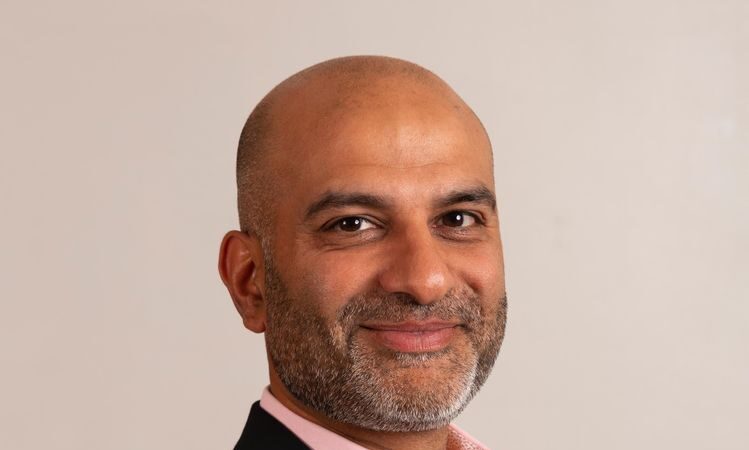
The chief executive officer of Standard Chartered’s crypto firm Zodia Markets lives in Brighton and comes to the London office one day a week.
Usman Ahmad, 44, says there is no need to monitor employees “every single day in physical proximity” and instead suggests that people should have the flexibility to manage their lives without worrying about commuting two hours a day.
“Crypto firms operate better when you allow remote work,” Ahmad told Financial News. Zodia Markets team is based across three key locations including the UK, Ireland, and UAE.
Ahmad’s support for remote work comes at a time when the biggest financial firms are split over hybrid working practices. While some, like HSBC, are cutting down office space to accommodate post-pandemic hybrid working which has resulted in under-utilised office space, some are calling their employees back to the office, while others are permitting remote working, while monitoring workers.
In an April memo, JPMorgan asked managing directors to return to the office five days a week. In May, the world’s largest asset manager BlackRock ordered staff back into the office four days a week. Citigroup, meanwhile, has maintained a flexible approach to hybrid working but has just begun a consultation on monitoring staff attendance in the office, with a focus on those that do not fall in line with the requirement to be in the office three days out of five.
That’s not for Zodia. “Expectations are around getting the job done rather than clocking in or clocking out,” Ahmad said.
The executive is no stranger though to the typical workday of a global City firm. He served at Merrill Lynch for roughly seven years as a vice president, and went on to work with HSBC for 10 years in different roles, including head of UK pricing and eTrading and Global head of fixed income derivatives.
Ahmad told FN that he wasn’t able to innovate at big firms during his banking career and that pushed him to join the crypto sector.
He was still in his HSBC post in 2013 when he first heard about bitcoin from colleagues.
“I got emails from my colleagues saying. ‘I discovered bitcoin, I’m leaving banking,’” Ahmad said.
“I mean credit to those pioneers who left banking to get into crypto,” he added.
While Ahmad didn’t jump as quickly as his peers despite his growing fascination with the fast-growing world of digital assets, he started feeling an itch of discontent around the cumbersome way in which traditional finance worked.
“I was frustrated about not being able to make a change. Big organisations can’t really afford to innovate and experiment. Some of the banks are struggling to keep up with innovative technologies,” he said.
He was impressed by the decentralised nature of crypto and that attracted him to join the emerging asset class.
He worked with Hong Kong-based crypto firm BC Group from October 2018 to July 2021 before joining Zodia Markets as CEO.
Alongside his move, the total number of crypto users reached 425 million in December 2022, up 39% compared to December 2021, according to a report by Crypto.com.
With rising adoption, several challenges have also emerged for crypto firms around the world, as well as traditional finance houses which are planning to enter the crypto space.
The UK government outlined plans in April 2022 to make the UK a global crypto hub but a firm legislative framework to regulate the nascent sector is yet to emerge. The EU, meanwhile, has shot to the lead globally with its Markets in Crypto Asset rules, or MiCA. Concerned with the UK being on the back foot, a cross-party group of UK MPs and Lords on 5 June called for immediate crypto regulations. The group also highlighted the need for a smooth and hassle-free crypto business registration process in the country.
“Because of the lack of regulatory clarity, crypto firms looking to set up businesses in the UK struggle to get basic banking facilities. I have seen banks saying to crypto firms, ‘Sorry we can’t deal with you,’” Ahmad told FN.
READ MPs urge appointment of a crypto tsar amid call for ‘immediate crypto regulations’
Still, there are some broader efforts, addressing concerns over consumer harms, which have gone ahead — on 8 June, the Financial Conduct Authority introduced tough rules for the marketing of crypto assets. The new measures will also ban crypto referral bonuses from 8 October 2023.
Ahmad believes the ban on high-risk crypto marketing is ultimately important for the growth of this sector in the UK.
“I don’t think crypto firms should be allowed to market and sell unlimited upside and no downside. The risk disclosure should be appropriate. It is important, so you don’t end up with advertisements on tubes and buses saying buy bitcoin and become millionaire,” he said.
But this isn’t enough. The Zodia Markets boss believes that despite the recent efforts of the government to bring regulatory clarity in the UK, London is falling behind Hong Kong and Singapore in attracting global crypto firms.
Meanwhile, the Middle East is emerging as a “top spot” for crypto firms, he says.
READ Nomura’s crypto CEO backs Asia for growth drive
Zodia Markets is currently in talks with Abu Dhabi Global Market and Dubai International Financial Centre for global expansion.
“We are in the process of getting in-principle approval from Abu Dhabi Global Market,” Ahmad told FN.
In January, Zodia Markets hired Paul Howard, a former senior director at BlockFi, as head of sales.
“We are planning to expand our sales and distribution team,” Ahmad said, noting the growth is reliant on hiring “through networks instead of HR firms”.
“ I’m very keen on developing a diverse team, not only on the basis of gender but the diversity of thoughts,” he added.
To contact the author of this story with feedback or news, email Bilal Jafar






